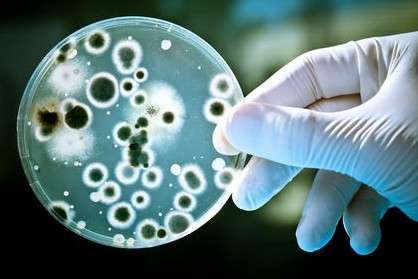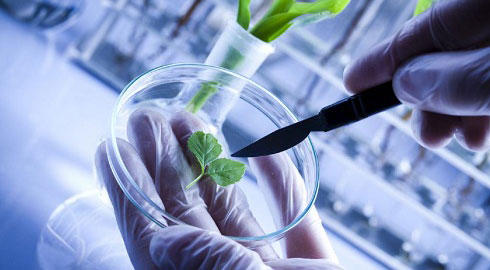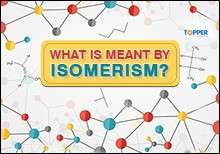BIOTECHNOLOGY: Technology that Modifies Biology

Biotechnology is a research-oriented science, a combination of Biology and Technology.
By 20th Jul, 2016 | 12:02 pm
ShareOverview
Biotechnology is a research-oriented science, a combination of Biology and Technology. It covers a wide variety of subjects such as Genetics, Biochemistry, Microbiology, Immunology, Virology, Chemistry and Engineering. It is also concerned with many other subjects such as Health and Medicine, Agriculture and Animal Husbandry, Cropping System and Crop Management, Ecology, Cell Biology, Soil Science and Soil Conservation, Biostatistics, Plant Physiology, Seed Technology and Bioinformatics.

Image source: http://images7.content-hca.com/
Course Path and Entrance Exams
Bachelor Degree:
- B.Sc. in Biotechnology
- B.Sc. in Biotechnology and Bioinformatics
- B.E. in Biotechnology
- B.Tech. (Industrial Biotechnology)
Eligibility
The minimum criterion is 10+2 which should include the subjects of Biology, Chemistry, Physics and Mathematics.
Undergraduate courses in Biotechnology (Engineering) entrance exams:
- The Joint Entrance Examination for IITs (IIT-JEE) for admission to various IITs
- A few engineering institutions offering undergraduate programmes conduct their own entrance examinations
The course duration of a B.Sc. programme in biotechnology is three years, whereas it is four years for B.E. and B. Tech. courses.
Masters Degree:
- M.Sc. Biotechnology
- M.Sc. (Agriculture) Biotechnology
- M.V.Sc. (Animal) Biotechnology
- M.Tech. Biotechnology
- M.Sc. (Marine) Biotechnology
- Medical Biotechnology
- M.Tech. Biomedical Engineering/Biotechnology
- MBA Biotechnology (follows a different course)
Eligibility
Graduates from all sciences/engineering technology/medicine fields are eligible for the postgraduate (M.Sc.) course in Biotechnology.
Integrated Courses:
Integrated M.Tech. programmes in various universities (B.Tech. + M.Tech.)
Entrance Exam- GATE (Graduate Aptitude Test in Engineering) and JEE
Doctor of Philosophy in Biotechnology
Entrance Exam: NET (National Eligibility Test)
Respective institute examinations (TIFR, GATE, SET)
Subjects Covered under Biotechnology
- Molecular biology/Genetics: Study of genes
- Cell biology: Study of plant and animal cells
- Biochemistry: Study of the metabolism of the body and various disorders associated with it
- Biophysics: Science of the application of the laws of physics to biological phenomena
- Immunology: Study of the defence mechanism of the body
- Environmental studies: Study and conservation of the environment
- Bioinformatics: Application of computer technology to the management of biological information
- Biostatistics: Interpretation of scientific data using statistics
- Microbiology: Study of different microorganisms
- Intellectual Property Rights (IPR): Intellectual property is the branch of law which protects the application of thoughts, ideas and information which are of commercial value. It thus covers the law relating to patents, copyrights, trademarks, trade secrets and other similar rights. In biotechnology, various innovations and plant varieties can be patented if it falls within the criteria as provided.
Good Colleges/Universities
- Indian Institutes of Technology: Kharagpur, Delhi, Roorkee, Guwahati, Warangal
- NIT (National Institute of Technology, Warangal)
- D Y Patil Vidyapeeth, Pune
- SRM University, Chennai
- Vellore Institute of Technology, Tamil Nadu
- Amity University, Delhi
- Anna University, Chennai
- BIT Mesra
- IIIT Hyderabad
- Guru Gobind Singh Indraprastha University, Delhi
- PSG College of Technology, Coimbatore
- IISER (Indian Institutes of Science Education and Research)
- NISER (National Institute of Science Education and Research)
- Central University of Bihar, Kerala, Tamil Nadu
- IISc (Indian Institute of Science)
Job Prospects and Top Companies
Professionals can seek job opportunities in the private sector such as food processing and agro-based industries, pharmaceutical farms or in different government agencies. One is eligible for the position of Research Scientist, Biotech Engineer, Research Associate, Marketing Executive, Sales Representative, Business Development Officer and Lab Technician. The biotech industry in India can be categorised into five different segments. The bio-pharmaceutical segment accounts for the largest share of the biotech industry.
-
Biopharma: Biopharmaceuticals are generally proteins, drugs and antibodies which are used for diagnostics and therapeutics.
- Biocon
- Serum Institute of India
- Wockhardt
- GlaxoSmithKline Pharmaceuticals Limited
- Bharat Serums and Vaccines Limited
- Shantha Biotechnics
- Panacea Biotec Limited
-
Bioindustrial: The bioindustrial sector is related to enzymes, yeast and yeast-based products and organic amino acids.
- Biocon
- Novozymes
- Advanced Enzymes Technologies
- Rossari Biotech
- Zytex
- Lumis Biotech
-
Bioservices: Bioservices refers to research-based contracts, manufacturing contracts and clinical research contracts (CRO).
- Biocon's two subsidiaries: Clinigene and Syngene
- Ø Quintiles
- PAREXEL
-
Bioagri: The bioagri sector is related to biofertilisers, biopesticides and genetically modified seeds.
- Rasi Seeds Limited
- Ankur Seeds
- Nuziveedu Seeds
-
Bio-IT: This sector is related to different products and services that represent bioinformatics.
- BrainWave Biotechnology Limited
- Strand Life Sciences
- SciNova India
- CytoGenomics
- Mascon
- Major IT giants such as Wipro, Tata Consultancy Services, Cognizant and Infosys have incorporated distinct divisions catering to the life sciences domain within their organisations.
Important Resources
- Education Franchisee opportunity
- NCERT Solution
- CBSE Class 9 Mathematics
- NCERT Solutions for class 10 Science
- Sample Papers
- CBSE Class 9 Science
- NCERT Solutions for class 10 Maths
- Revision Notes
- CBSE Class 10 Hindi
- CBSE Class 10 English
- CBSE Class 10 English
- CBSE Class 10 Social Studies
- CBSE Class 10 Science
- CBSE Class 10 Mathematics
- Career In Science After 10
- Career In Commerce After 10
- Career In Humanities/Arts After 10
- NCERT Solutions for Class 10
- NCERT Solutions for Class 11
- Business Studies Class 12 CBSE project





